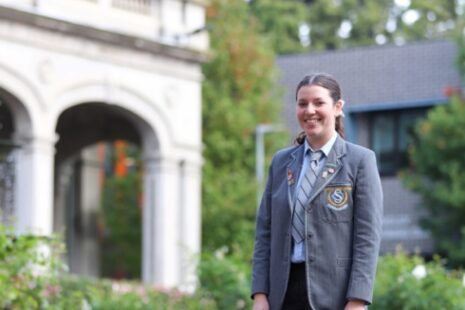Importance of Attitude in Learning

Through the many Covid-19 lockdowns Victoria has faced, we are all now quite used to the constant need to adapt and adjust to online learning and, despite the difficulty, we have not just managed the academic program, we have embraced it with vigour and commitment.
This is not to say it has not been without great challenge and demands placed upon us all. Now that we have been living through this pandemic for the past eighteen months, it is possible to look back and take stock of the impact of this significant change.
In the report, The State of School Education: One Year into the COVID Pandemic, Andreas Schleicher, Director for Education and Skills at the OECD, discusses developing a lifelong learning mindset in students, the importance of attitude in creating this mindset and the role of parents and teachers in contributing to this.
Two essential attitudes he identifies are, “motivation to complete tasks and enjoyment of reading.” Research demonstrates how vital these attitudes were during school closures “when students learn in their own speed or need to organise work on their own and can help students perform in school and strive to continue learning.”
The need for students to learn at their own speed is reflected in St Catherine’s School’s Senior Years Learning Model. Students now have greater flexibility in how and when they access lessons and the pace in which they engage with their learning. Extensive feedback has shown this initiative to be remarkably successful and what commenced as a pilot this year, will continue in 2022.
Schleicher also identifies the need for teachers to demonstrate creativity and resourcefulness in a digital society as another factor in determining lifelong learning. The work of our teachers in this space has been extraordinary. Our students have ongoing access to professional standard digital educational materials with students often using a resource multiple times until they feel confident of the learning required.
Another aspect worth noting in Schleicher’s report is a statement of teacher practices. He states there are practices:
“which have been found to help students develop higher motivation and achievement goals, and a sense of belonging at school, such as: teacher enthusiasm, especially when it is clear that teachers are passionate about the learning material; directed instruction, including organising learning material, setting clear goals and checking if students have remarks or questions; and teacher support, all can increase the value students attribute to school.”
The OECD report notes the importance of regular peer collaboration amongst educators regarding teaching practices. St Catherine’s School’s Staff Professional Review program provides a forum for our educators to meet and discuss aspects of teaching practice based on class observations and collection of data.
This investment in ongoing professional development, Schleicher concludes will, “help bolster teacher enthusiasm and creativity and create a positive learning culture within the school community.”
It has indeed been a tough eighteen months living with this pandemic, but necessity has produced deep thinking and our teachers and students are all the better for it.





